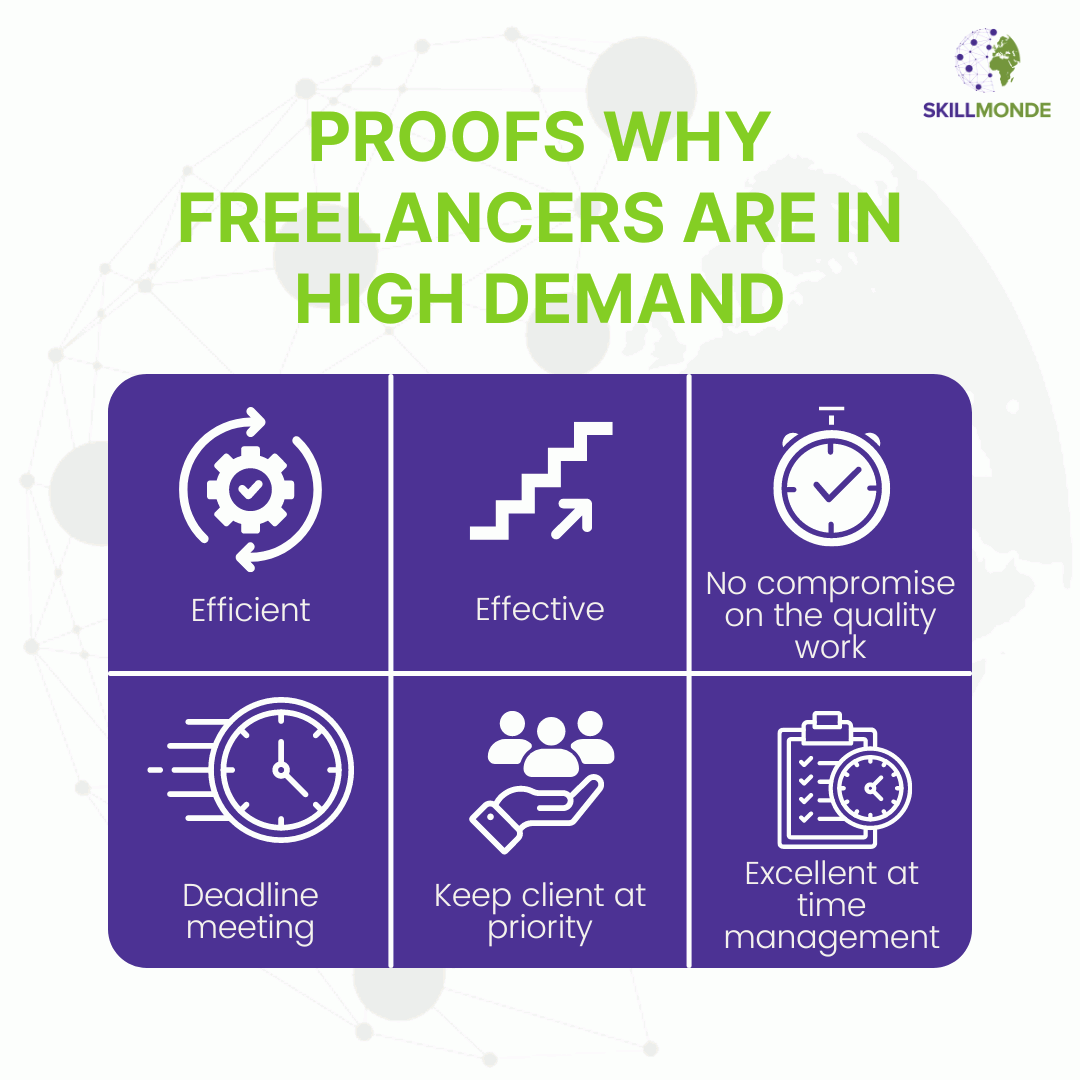Freelancing work is Working for oneself, as opposed to a business. Freelancers are independent contractors that frequently operate on a project-by-project basis, providing their knowledge and abilities to clients in need.
Freelancers have the freedom to select the projects and clients they wish to work on because they are not bound to a specific company. As more people explore ways to make a living while retaining their independence and freedom, this line of work is growing in popularity.
Freelancers can perform a wide variety of jobs. Writing and editing, graphic design, web development, photography, and social media management are a few examples of typical freelance jobs. Additionally, freelancers could provide coaching, tutoring, or consulting services. A freelancer's exact line of work will depend on their expertise, experience, interests, and the demands of their clients.
The publishing industry's freelancers can offer a range of services to authors, publishers, and other clients. A few common types of freelancing in the publishing sector are editing and proofreading, book design and layout, and marketing and promotion.
Freelancers might provide writing and research services or focus on a certain branch of publishing, such as children's novels or scholarly publications. In the publishing industry, independent contractors could collaborate with writers directly to develop and polish their work or with publishers. This will in turn aid with the printing and distribution of books and other publications.
How much do freelancers earn from freelancing work?
Depending on the type of job they do and the contract they have with their clients, freelancers may receive a variety of payments. While some independent contractors bill by the hour, others may set a predetermined fee for a particular assignment.
On a retainer basis, where they are paid a set rate for a set quantity of work each month, freelancers can also offer their skills. Most of the time, freelancers are paid after a project is finished or regularly, such as once a week or once a month.
Freelancers may also receive payment through more conventional means like checks or bank transfers or through the internet services like PayPal.
What are the Challenges Freelancers have to face?
What are the Challenges Freelancers have to face?
Freelancers often complain about the validation of the work and the payment thereafter follows. There are several occasions where freelancers put their 100% time and effort to complete the assigned project. Only to find that the contractor has ghosted them. These are the examples of hurdles faced by freelancers, others also include:
Challenges:
- Unpredictable income: Since freelancers are not entitled to a regular paycheck like traditional workers are, their income sources are frequently unpredictable. Planning and creating a budget may be challenging as a result.
- Lack of benefits: It can be expensive because freelancers frequently do not have access to retirement plans, paid time off, or health insurance.
- Limited job security: Since freelancers do not have a contract or other agreement that promises a specific amount of work, they do not have the same level of job security as typical workers.
- Isolation: Since they do not have the same social connections and support as typical employees, freelancers could experience isolation.
- Less possibility of career growth: Limited career progression options may exist for freelancers, who may be forced to rely on their initiatives to find new clients and tasks.
- Lack of structure: Independent contractors may be required to set their timetables and organise their work, which might be difficult for some people.
- Always on the lookout for clients: It might be challenging for freelancers to find new clients, but they may need to do so frequently to maintain a steady workload.
- Taking care of money: Freelancers are in charge of handling their own money, which includes billing clients, keeping track of expenses, and paying taxes.
- Time management: To fulfil deadlines and produce high-quality work, freelancers must be able to efficiently manage their time.
- Marketing and branding: To draw in new clients, freelancers must be able to sell their abilities and services convincingly.
Freelancing is nevertheless the most preferred work among professionals as well as newbies. It gives a sense of liberation and time to enjoy some self-time. With the right connection and contact with firms, companies, and contractors, freelancing work can bring a good deal of money into your pocket.
FAQs on Freelancing work
-
What is freelance work?
- A person who works as a freelancer provides services to clients or companies on a project-by-project basis. Freelancers are independent contractors who do not work for an employer.
- What are some typical freelancing job categories?
- Writing, graphic design, web development, social media management, photography, and consultancy are a few examples of common freelancing professions.
-
How do I locate freelance employment?
- You can locate freelancing employment in a variety of ways, including networking, using online job boards like Upwork or Freelancer. You can also send out cold emails to prospective clients, and advertising your services on social media or a personal website.
-
How much money can I make working freelance?
- Depending on the sort of job, amount of experience, and geographic location, a freelancer's earnings can vary substantially. While some independent contractors bill by the hour, others bill by the job. To make sure you are pricing your services competitively, it is crucial to study the going rates for your services in your market.
-
How do I launch my own freelance company?
- In order to start a freelancing business, you must first select a legal structure. Get a relevant licenses or permits with a solid business plan. Open a bank account, and create an online presence via a website or social media platforms.
-
What are the advantages and disadvantages of freelancing?
- Working as a freelancer offers flexibility, independence, and the chance to work on a range of projects. The need to handle every part of the firm oneself, lack of benefits, and revenue instability are all disadvantages.
-
How to make sure you get paid for your freelance work?
- Choose a secure payment platform, request a deposit or partial payment upfront, and set clear payment conditions and contracts with clients. By doing so, you will ensure payment for your freelance services.
-
How can a freelancer develop a portfolio?
- As a freelancer, you can use your personal website or social media accounts to display your work, enter contests and job postings online. You can then offer your services to friends and family in order to gain experience and establish a solid reputation.
